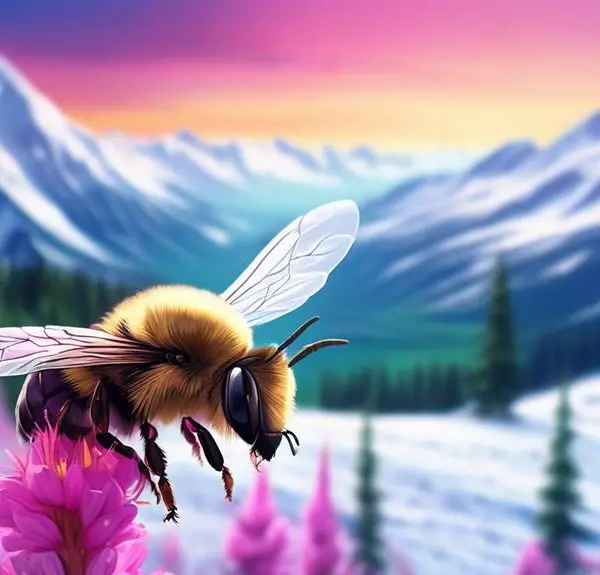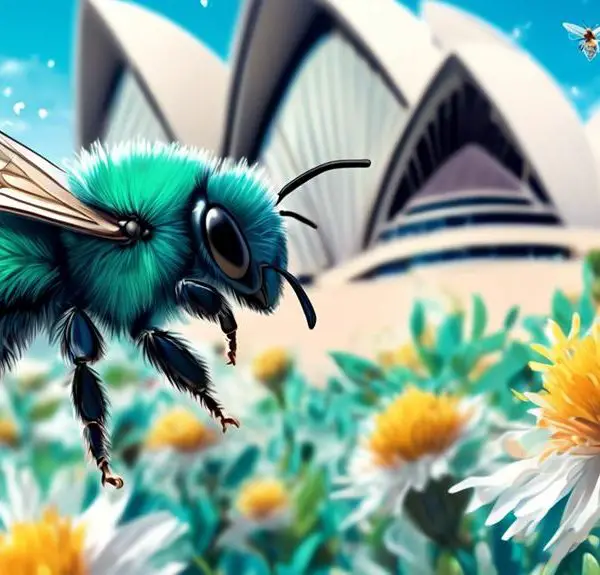Alberta's native mason bees, a key player in our ecosystem, face unexpected threats – discover their importance and what's at stake for us all.
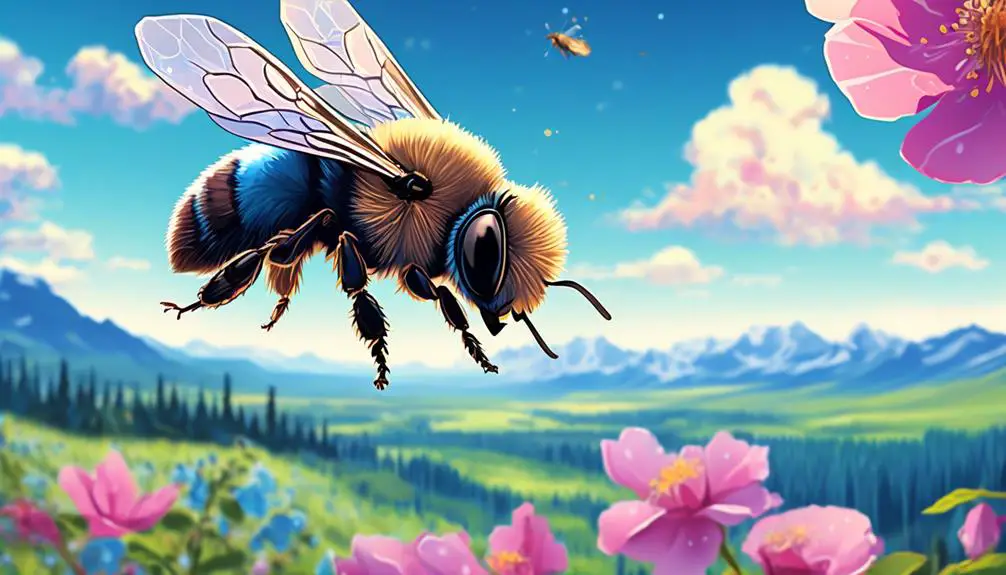
Are There Mason Bees in Alberta?
You've probably heard the buzz about mason bees, but did you know these industrious insects are as Albertan as a horse and buggy? Yes, these small, metallic blue or black solitary bees are native to Alberta and play a significant role in our ecosystem.
Unlike honeybees, mason bees do not live in colonies, and they don't produce honey. But here's the kicker, they're remarkable pollinators, and their existence could be under threat.
Why should you care? Well, without giving away too much, let's just say their disappearance would have impacts you can't even begin to imagine.
Key Takeaways
- Mason bees are small, metallic blue or black solitary bees that use mud to seal off their nests.
- They have been pollinating plants for over 100 million years and have evolved into over 200 species across North America.
- Mason bees are more efficient pollinators than honeybees and their use in orchards and gardens has increased biodiversity and enhanced crop yields.
- Conservation efforts for Mason bees involve studying their biology and behavior, raising awareness, habitat conservation, and taking informed action at multiple levels.
Understanding Mason Bees
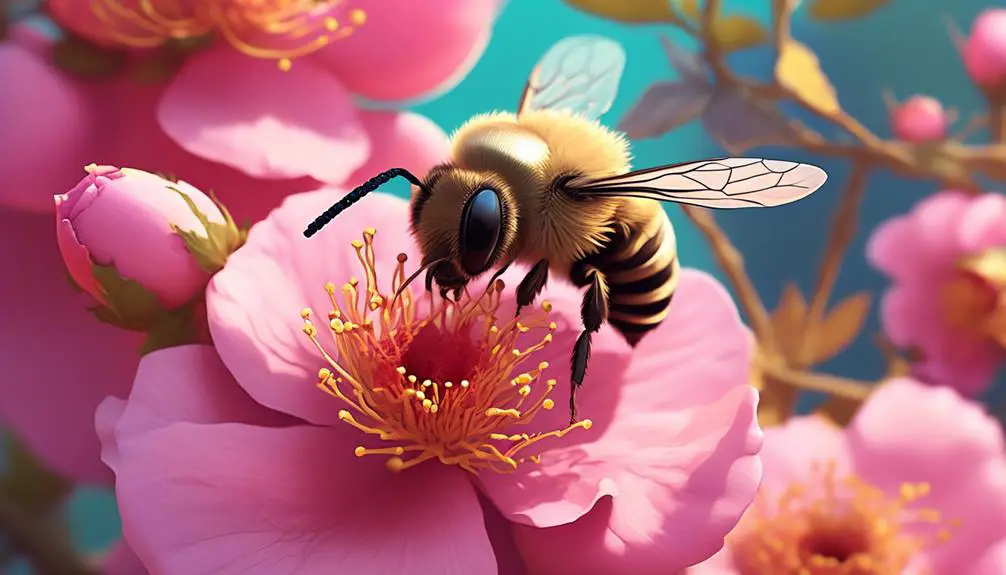
To truly comprehend the nature of Mason Bees, it's crucial to delve into their unique biology, lifecycle, and the pivotal role they play in the ecosystem of Alberta.
These small, solitary bees aren't your typical honey producers. They're named for their masonry-like behavior, using mud to seal off their nests. Their metallic blue-green bodies are a sight to behold, yet it's their lifecycle that truly sets them apart.
Unlike honeybees, Mason Bees are solitary. Each female is a queen and builds her own nest. After mating in spring, she lays her eggs in narrow spaces and provides each with a food ball made of pollen and nectar. Then she seals off each chamber with mud. The larvae feed, grow, and metamorphose inside these chambers, emerging as adults the following spring.
Their solitary nature means they don't have a hive to protect, making them docile and rarely stinging. They're also super pollinators, more efficient than honeybees. You see, they're essential for the Alberta ecosystem, pollinating local flora and contributing to biodiversity.
Understanding this helps you appreciate their unique role in maintaining our environment.
Mason Bees: A Brief History
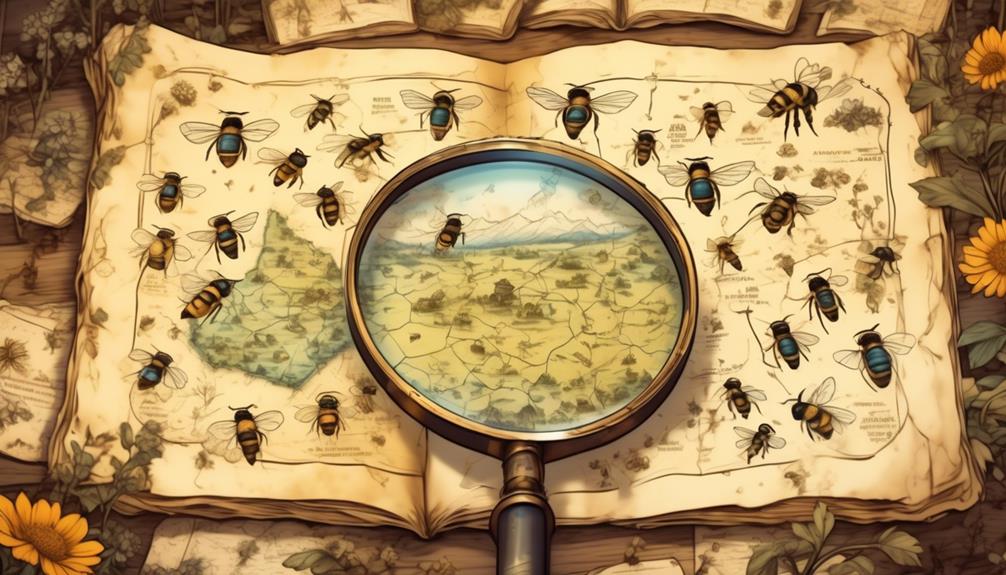
Now that you've got a grasp on their unique biology and role in Alberta's ecosystem, let's trace back the fascinating history of Mason Bees. Believed to have originated in the Cretaceous period, Mason Bees have been pollinating plants for over 100 million years, significantly predating the appearance of humans.
These solitary bees have evolved with the changing landscapes and climates, diversifying into over 200 species across North America alone. They've been particularly effective in regions with temperate climates, such as Alberta, adapting to the short pollination windows with their efficient work ethic.
During the 20th century, researchers began to recognize the potential of Mason Bees as alternative pollinators. Their exceptional pollination capability, resistance to parasites, and adaptability to different environments made them an attractive subject for scientific study and agricultural use.
In the 1980s, a concerted effort was made to cultivate and distribute Mason Bees to farmers and gardeners. Their use in orchards and gardens has increased biodiversity, enhanced crop yields, and prompted further interest in their preservation and propagation.
Today, you'll find Mason Bees making invaluable contributions to ecosystems and human agriculture, a testament to their long, enduring history.
Mason Bees in Alberta's Ecosystem

Ever wondered how Mason Bees contribute to Alberta's ecosystem? Well, you're in for quite an education! These tiny pollinators play a crucial role in maintaining the health of local flora. They're better pollinators than honeybees, a fact that might surprise you.
Mason Bees | Honeybees | Effect on Ecosystem |
|---|---|---|
More efficient pollinators | Less efficient pollinators | Mason bees increase plant diversity |
Do not produce honey | Produce honey | Mason bees' focus is solely on pollination, not honey production |
Solitary species | Social species | Mason bees do not compete with honeybees for resources |
Nest in existing holes | Build hives | Mason bees support the ecosystem without damaging plant structures |
Mason bees are solitary and do not build hives like honeybees. Instead, they nest in existing holes, minimizing their disruption to the environment. Their efficiency and solitary nature mean they do not compete with honeybees for resources, ensuring a balance in the ecosystem. In short, Mason Bees are unsung heroes in Alberta's ecosystem. They boost biodiversity, support the growth of various plants, and maintain a balanced ecosystem. So, next time you spot a Mason Bee in Alberta, give it a nod of thanks for its tireless work.
Role of Mason Bees in Agriculture
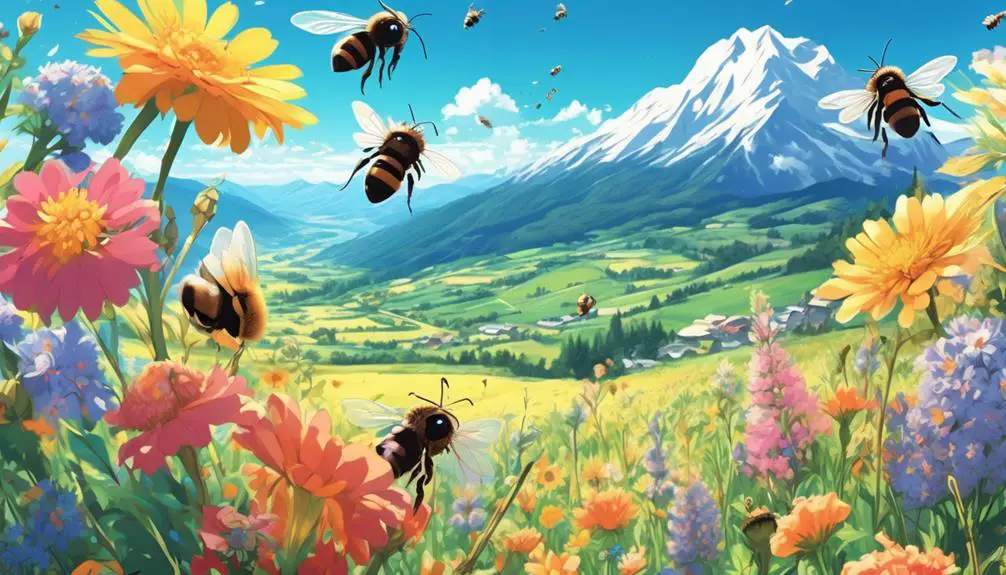
While the contribution of Mason Bees to Alberta's ecosystem is undeniably significant, it's equally vital to examine their profound impact on the province's agriculture.
You see, Mason Bees are exceptional pollinators. They're more productive than honeybees, with a single Mason Bee potentially doing the work of 100 honeybees. Their unique 'belly-flopping' method of pollination ensures that more pollen is transferred. This is crucial in agriculture, where pollination directly affects crop yield.
In Alberta, Mason Bees contribute greatly to the pollination of fruit trees, berries, and other crops. The high pollination rates lead to larger, more uniform fruits and higher crop yields. Moreover, they're less affected by weather conditions and pesticides, making them reliable contributors to agriculture.
Furthermore, Mason Bees are solitary, reducing the risk of disease transmission among colonies. This trait also makes them less aggressive, ensuring safer cohabitation with humans.
Protecting Mason Bees: Conservation Efforts
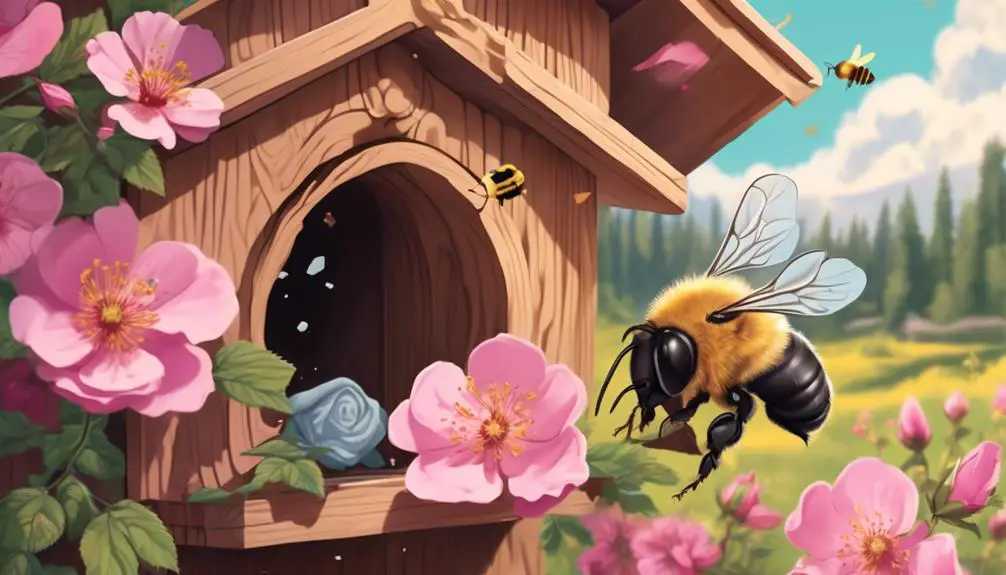
Given their critical role in Alberta's agriculture, it's essential that you're aware of the ongoing conservation efforts to protect and sustain the Mason Bee population. These efforts are multidimensional, encompassing research, public education, and habitat conservation.
Researchers are studying Mason Bees' biology and behavior to develop effective conservation strategies. They're exploring the bees' nesting preferences, dietary needs, and responses to environmental changes. This knowledge is essential to create conditions that favor their survival and reproduction.
Public education is another major component. You can contribute to this by learning about Mason Bees and sharing that knowledge. Understanding their importance in pollination and the threats they face can inspire individual and collective actions to protect them.
Lastly, habitat conservation is vital. Many natural habitats of Mason Bees are under threat due to urban development and agricultural practices. Conservationists are working to preserve these habitats and also create new ones. You can join this effort by setting up a Mason Bee house in your garden, planting native plants, and avoiding pesticides.
In essence, protecting Mason Bees in Alberta is a shared responsibility that calls for informed action at multiple levels. It's about understanding, respecting, and supporting these vital pollinators.
Conclusion
So, you see, mason bees indeed inhabit Alberta, playing a key role in our ecosystem and agriculture. They're a vital part of our world, helping to pollinate plants and crops.
It's up to us to prioritize their conservation, ensuring they continue to thrive. Remember, our actions today influence the well-being of these industrious insects tomorrow.
By understanding and protecting mason bees, we safeguard Alberta's environmental health and our agricultural prosperity.

